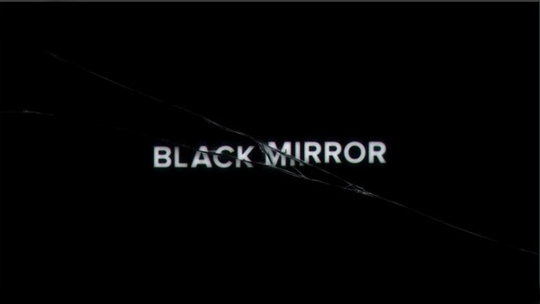Black Mirror: The Writing Is on the Wall

Warning: potential spoilers ahead!
Recently, many millenials are sure to have heard the words "Black Mirror"—probably in the same sentence as "must-see"—due to the release of its third season on Netflix on October 21, 2016. The series, created by Charlie Brooker began in 2011 as an Endemol production broadcasted in the U.K with relatively low average ratings compared to other British series broadcasted at the time. The show, which could be considered satirical or speculative science fiction, takes its audience to a different universe and storyline in each hour-long episode. In each episode, events take a dark turn in an already dark—but terrifyingly realistic—universe. According to an interview from 2011, Brooker hopes that someday people will use his creation almost as an adjective, to describe a certain type of situation, in the same way that people refer to the similar series The Twilight Zone. Though it is unlike almost any other show, Black Mirror's first season received praise both by critics and audiences for its audacity, and in-depth examination of modern society and our use of technology. Consisting of only three episodes, this season tackled modern-day realities such as politics, fame, and romantic relationships, always using technology and modern-day behavior or norms to present the viewer with quite a grim world.
Image Credit: Alice Preat/Black Mirror Season 1
The second season, which came out in 2013, followed the same framework: three hour-long episodes exploring the same overarching themes. A Christmas special also came out in 2014. As the show's identity started developing, more and more people were talking about it, though it hadn't quite become an international hit just yet. It is only this year that the release of the 3rd season has put the show has been on everyone's mind and newsfeed. If something is going to make a show known, getting signed for 16 episodes on Netflix will do the trick. After a two-year-long silence, Brooker has plunged us into his dark world once more. Because this is Netflix, some true fans might find that this last season feels a bit different than the previous two; a bit more 'appropriate' or 'predictable' perhaps, due to its instant rise to the masses. Though this might be true, Brooker has ultimately stayed faithful to his technique, and remained consistent on the themes approached: relationships, politics, war, crime, societal norms and values—only with a higher production value.
In any case, this show goes far beyond sheer entertainment. In its thematic techniques, such as satire, sarcasm, suspense, and plot-twists, Black Mirror is certainly entertaining. However, at its very core, and in the themes and issues it tackles, this show is a powerful message of warning. Set in a world that isn't too far from the current era, the show instantly makes us think long and hard about what we have come to as a society. As Brooker has expressed many times, he is not particularly against or for the advancement of technology; his concern is rather on how we are using all of this technology in our day-to-day life and as a society.
In episodes such as "The Entire History of You," Brooker uses a conceptual technology called "the grain," a brain implant that allows people to store all their memories, replay them and even show them to others—and almost everybody has one. In that episode, for example, Brooker isn't criticizing technology advancement itself, or the device, but rather the fact that the protagonist of the episode is using this technology to obsess over his wife's indiscretions. In "Be Right Back" (season 2), a grieving widow uses a computer software in order to recreate her life with her husband. She quickly loses grip of reality and becomes convinced that the "thing" she is talking to is truly her husband. Again, here, Brooker isn't commenting on the technology, rather criticizing our use of technology—social media and online dating.
Image Credit: Alice Preat/Black Mirror Season 3
In short, whether it is the show's last season and its worldwide that draws you in, or the overarching narrative and message of the series as a whole, Black Mirror is definitely one to watch—especially now that Netflix has signed on for a fourth season! Not only is the show delightfully entertaining, it might make you think twice about the times we live in, and, who knows, maybe even your personal use of technology?







